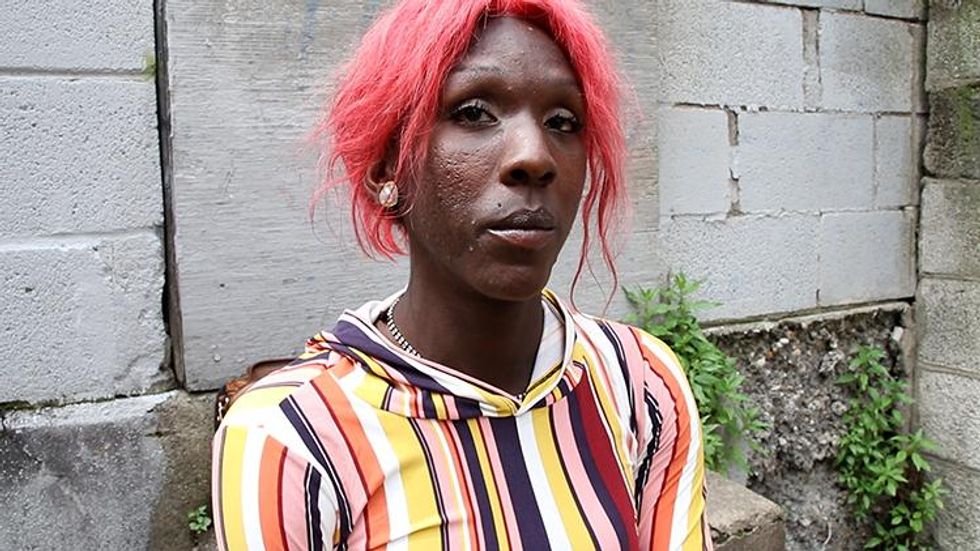Like many, BLACK AS U R (which made its debut at Outfest Fusion 2022) director Micheal Rice spent 2020 in quarantine and doom-scrolling on his phone. The pandemic was in full swing, the presidential election loomed like an ever-present ticking clock, and people took to the streets to demand an end to state violence against Black and Brown bodies under the banner of Black Lives Matter. All the while, they defended the simple but absolute truth those three words represent against the violent reprisal of white nationalist counter-protesters and the police themselves.
It was during this time that another disturbing pattern began to emerge for Rice, beginning with a video in which a young trans woman named Iyanna Dior was brutally attacked and nearly killed by a mob at a convenience store in St. Paul, Minn. This came just days after the killing of George Floyd in nearby Minneapolis, a horrifying event that became a global inflection point for the BLM movement. Dior's attack didn't draw the same kind of reaction because, as is generally the case with the growing number of deaths of Black trans women, it was largely overlooked. This injustice inspired Rice to ask why -- why is violence against Black queer and trans individuals swept under the rug? Do their Black lives matter? These questions serve as the crux of BLACK AS U R, as Rice illuminates the role of queer people, both in historical and modern Black liberation movements, juxtaposed against the homophobia that still exists in some Black spaces.

The film's most poignant section focuses on an interview with Dominque Rem'mie Fells, a young black trans woman from Philadephia, discussing her dreams for the future alongside the struggles with addiction and sex work she faces in the present. It's especially heartbreaking knowing that, not long after it was filmed, she would be killed. Her story helped reignite the Black Trans Lives Matter movement in 2020.
It's a powerful piece of filmmaking that centers on the pain and beauty of Black queer life, allowing those who know firsthand the complexity of their intersectionality to tell their stories. This comes in many forms. At one point, it's trans and nonbinary teens showing off their considerable voguing talent in the streets, defiantly out and queer. There's thought-provoking social critique and historical context from scholars Michael Roberson and Charlene Sinclair. It also appears as multiple generations of Black men debating whether or not queerness has a place in the Black liberation movement at their local barbershop. It's a difficult conversation. It's actually the resolution of that scene -- which Rice returns to several times -- that's perhaps the most emblematic of the film, specifically when it takes an abrupt and wonderfully surprising turn for the hopeful.
Yes, Rice is illuminating pain and trauma here, along with all the work that has yet to be done. But there's also beauty and hope on display that help convey the full scope of these issues.
BLACK AS U R made its debut at Outfest Fusion. This review is part of our coverage of the Outfest Fusion 2022.





































































Charlie Kirk DID say stoning gay people was the 'perfect law' — and these other heinous quotes